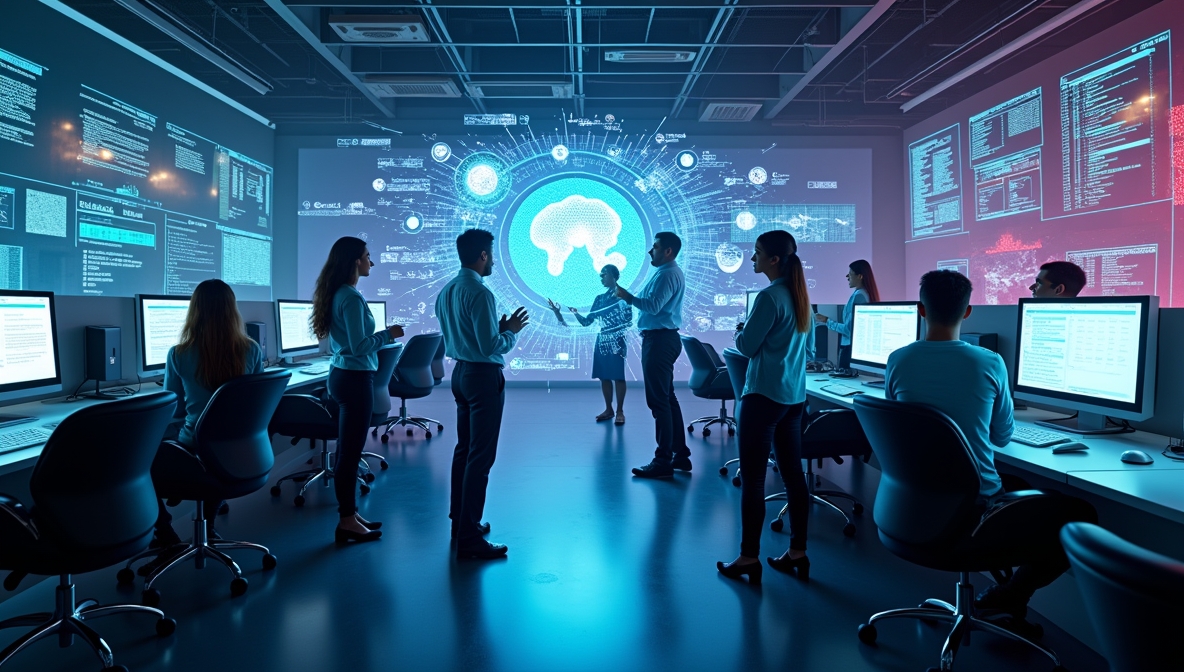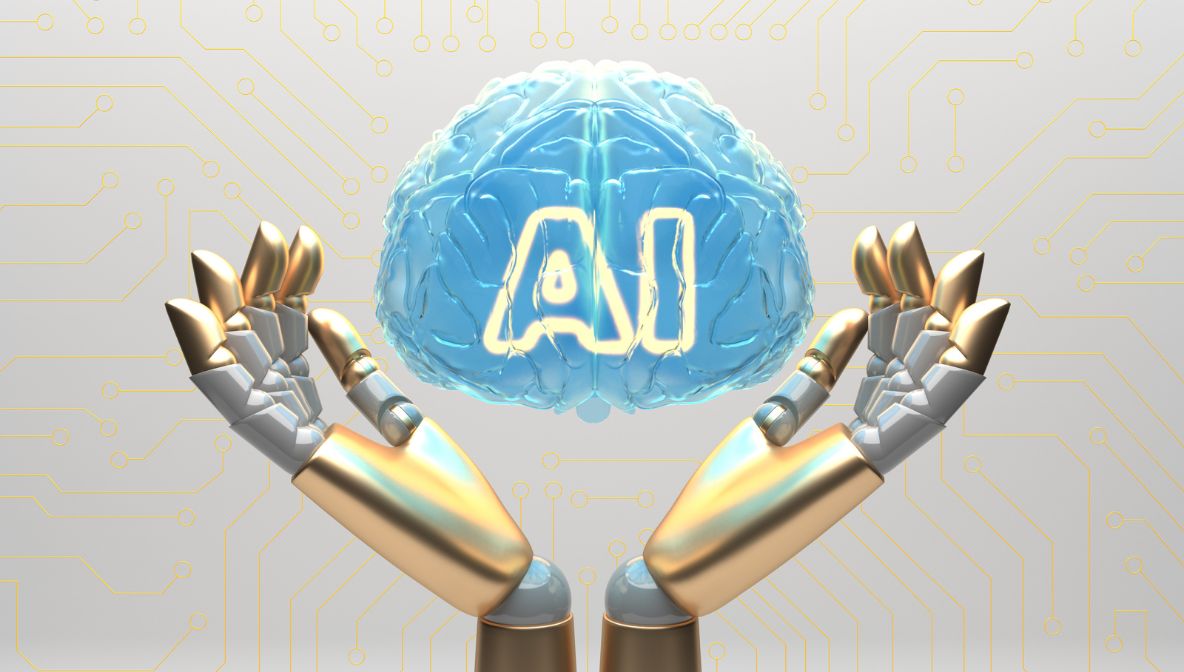In today’s fast-paced business world, companies are constantly looking for ways to stay competitive. One of the most powerful technologies aiding in this quest is Artificial Intelligence (AI). With the rapid advancements in AI, businesses are leveraging AI for business applications to enhance their operations and drive efficiency. From automating routine tasks to providing data-driven insights, AI is making a significant impact across industries.
As we enter 2025, businesses are increasingly adopting AI and automation solutions to streamline operations and improve decision-making processes. AI not only boosts productivity but also creates new opportunities for growth and innovation. This article explores how AI for business applications is revolutionizing industries and shaping the future of enterprises.
Key Points:
- AI is transforming business operations by improving efficiency and productivity.
- AI applications are driving automation and data-driven decision-making.
- The adoption of AI will continue to grow, especially in 2025 and beyond.
What Is AI for Business Applications?
AI for business applications refers to the integration of Artificial Intelligence technologies to automate, optimize, and innovate various aspects of business processes. AI algorithms analyze large sets of data to extract valuable insights, predict future trends, and make real-time decisions. These applications help businesses reduce costs, increase accuracy, and streamline workflows.
AI is used across various business functions such as marketing, finance, customer service, and supply chain management. With AI’s ability to process vast amounts of data, businesses can make smarter decisions and focus on strategic goals.
For example, companies like Amazon and Netflix use AI to provide personalized recommendations to customers, while AI-driven chatbots assist businesses in automating customer service operations.
Comparison Chart: AI in Business Applications vs Traditional Methods
| Feature | AI for Business Applications | Traditional Methods |
|---|---|---|
| Data Processing Speed | Fast and real-time | Slow and manual |
| Decision-Making | Data-driven and automated | Human-driven and biased |
| Accuracy | High precision | Susceptible to human error |
| Cost Efficiency | Reduces operational costs | High labor costs |
How Does AI Improve Business Efficiency?
AI for business applications improves efficiency in several ways. First, AI systems can automate repetitive tasks, freeing up employees to focus on more creative and strategic activities. For example, AI tools can handle data entry, scheduling, and report generation, which traditionally required manual labor.
AI-powered analytics can also optimize supply chain management, inventory control, and logistics. By predicting demand patterns, AI helps businesses avoid overstocking or running out of products. This minimizes waste and ensures that businesses can meet customer needs in a timely manner.
Moreover, AI applications such as machine learning and natural language processing are improving communication within organizations. AI-powered chatbots, for instance, enable 24/7 customer support, while predictive analytics provides decision-makers with real-time data for better business strategies.
Note:
AI for business applications is key to streamlining daily operations and improving overall efficiency.
AI and Automation: The Future of Business Operations
As AI and automation technologies continue to evolve, businesses are increasingly integrating them into their daily operations. AI for business applications is not only enhancing efficiency but also automating complex workflows. AI-driven systems help companies optimize customer engagement, reduce human error, and speed up product development.
AI in automation is particularly useful for repetitive tasks such as inventory management, order fulfillment, and fraud detection. For example, in the financial industry, AI algorithms analyze transaction data to detect fraudulent activities in real-time, helping prevent financial loss.
Another area where AI and automation are having a huge impact is in manufacturing. Robots powered by AI can assemble products with high precision and minimal human intervention, lowering production costs and improving quality control.
AI Trends in 2025 and Beyond
As AI for business applications continues to advance, several trends are expected to shape its future. By 2025, businesses will see even greater integration of AI into their daily operations, driven by continuous improvements in machine learning, deep learning, and data analytics.
- AI and Automation Expansion: Automation will continue to expand across industries, helping companies reduce costs and improve operational efficiency.
- Personalized Customer Experiences: AI will be used to provide hyper-personalized experiences for customers, such as personalized shopping recommendations and tailored content.
- AI in Decision-Making: With AI becoming more sophisticated, decision-making will become increasingly automated, with AI analyzing data in real-time to provide actionable insights.
Table: Key AI Trends in 2025
| Trend | Impact on Business | Example Use Case |
|---|---|---|
| AI-Driven Automation | Increased efficiency and reduced costs | Manufacturing, Customer Service |
| Personalized AI Solutions | Better customer experiences | Retail, Healthcare |
| Advanced AI Analytics | Improved decision-making | Marketing, Finance |
How Is AI Applied in Various Industries?
AI for business applications is already transforming multiple industries, each benefiting from its capabilities in unique ways. Some of the industries seeing the most significant impact include:
- Healthcare: AI is being used in healthcare for predictive diagnostics, treatment planning, and drug discovery. Machine learning algorithms can analyze medical images and data to help doctors make more accurate diagnoses.
- Retail: In retail, AI helps businesses optimize inventory, forecast demand, and personalize marketing campaigns.
- Finance: AI and automation in finance are revolutionizing risk management, fraud detection, and customer service, improving financial decision-making and regulatory compliance.
- Manufacturing: AI-driven robots and automation tools are enhancing production lines, reducing human error, and increasing product quality.
Note:
AI applications in healthcare, retail, finance, and manufacturing are only the beginning of what AI can do for businesses in the future.
Conclusion
In conclusion, AI for business applications is transforming industries by improving efficiency, reducing costs, and enabling businesses to make smarter, data-driven decisions. As we look toward 2025, the role of AI will continue to expand, offering new opportunities for innovation and growth.
AI is already a key player in various sectors, from healthcare to retail to finance, and its applications will only become more advanced. Businesses that embrace AI technology will have a significant competitive advantage, helping them stay ahead of the curve and thrive in a rapidly evolving digital landscape.
FAQ’s
-
What are the main applications of AI in business?
AI is used in automation, data analysis, customer service, and predictive analytics to improve business efficiency. -
How does AI improve decision-making in business?
AI provides real-time insights and analyzes large datasets, helping businesses make data-driven decisions and predictions. -
How can AI help businesses reduce costs?
AI automates routine tasks, improves operational efficiency, and helps optimize processes, ultimately reducing labor and operational costs. -
What are the AI trends businesses should watch in 2025?
Key trends include increased automation, personalized customer experiences, and AI-driven decision-making. -
Is AI for business applications suitable for all industries?
Yes, AI is applicable across various industries, including healthcare, finance, retail, and manufacturing, offering tailored solutions for each.




